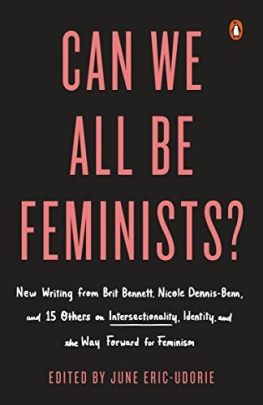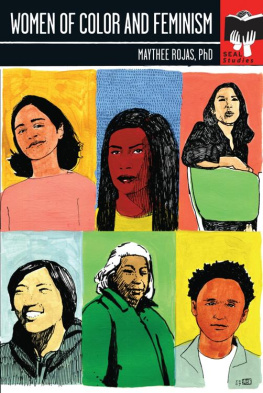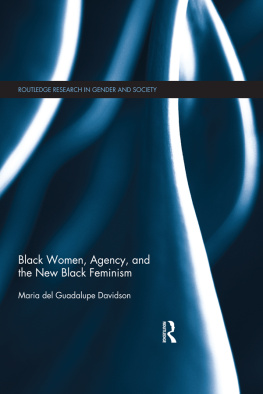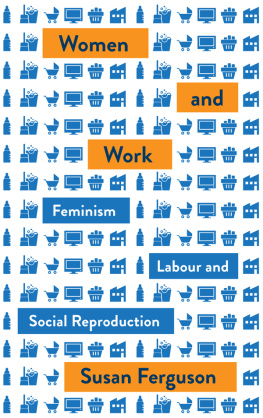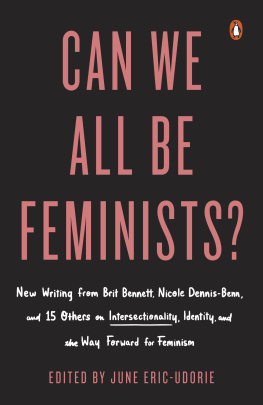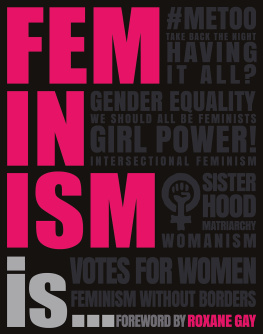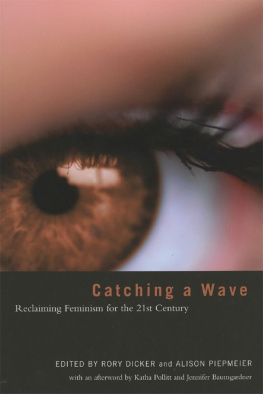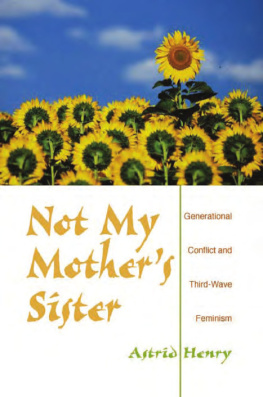As timely as it is well-written, this clear-eyed collection is just what I need right now.
In an eloquent and searing introduction... Eric-Udorie calls to mind a young Audre Lorde.
PENGUIN BOOKS
CAN WE ALL BE FEMINISTS?
June Eric-Udorie is a twenty-year-old British writer and feminist activist. Named Elle UKs Female Activist of the Year for 2017, she has been included on lists of influential and inspiring women by the BBC, the Guardian, and more. A cofounder of Youth for Change, an initiative that works to combat female genital mutilation and forced marriage around the world, she recently spearheaded a successful campaign to overturn the British governments decision to remove feminism from the nationally mandated A-level (high school) politics syllabus. June has spoken at the Southbank Centres Women of the World Festival, the United Nations, and elsewhere, and her writing has appeared in the Guardian, the Independent, New Statesman, the Telegraph, ESPN The Magazine, and Fusion, among others. June is currently an undergraduate at Duke University, where she is a recipient of the University Scholars merit scholarship and a Global Human Rights Scholar at the Kenan Institute for Ethics.
PENGUIN BOOKS
An imprint of Penguin Random House LLC
penguinrandomhouse.com
Copyright 2018 by June Eric-Udorie
Each author holds the copyright for their own essay.
Penguin supports copyright. Copyright fuels creativity, encourages diverse voices, promotes free speech, and creates a vibrant culture. Thank you for buying an authorized edition of this book and for complying with copyright laws by not reproducing, scanning, or distributing any part of it in any form without permission. You are supporting writers and allowing Penguin to continue to publish books for every reader.
LIBRARY OF CONGRESS CATALOGING-IN-PUBLICATION DATA
Names: Eric-Udorie, June, 1998- editor.
Title: Can we all be feminists? : new writing from Brit Bennett, Nicole Dennis-Benn, and 15 others on intersectionality, identity, and the way forward for feminism / edited by June Eric-Udorie.
Description: New York, New York : Penguin Books, an imprint of Penguin Random House LLC, [2018] | Includes bibliographical references.
Identifiers: LCCN 2018018203 (print) | LCCN 2018038675 (ebook) | ISBN 9780143132370 (paperback) | ISBN 9780525504351 (ebook)
Subjects: LCSH: Feminism. | Feminist theory. | Sex role. | Equality.
Classification: LCC HQ1155 (ebook) | LCC HQ1155 .C355 2018 (print) | DDC 305.42--dc23
LC record available at https://lccn.loc.gov/2018018203
Version_1
INTRODUCTION
June Eric-Udorie
T HERE WAS ONCE a time when I didnt have the language for the discrimination and gender inequality I witnessed inside and outside my childhood home. As a young girl growing up in Lagos, Nigeria, Id see stories on the news about men beating up their wives, and the people around me would say things like, Thats what she deserves. I listened as older women gossiped about grown men leering (or worse) at teenage girls, and watched as they shrugged their shoulders, calling it unfortunate. When I asked my mother about these things, she ignored me and changed the subject, or asked if this was the sort of behaviorasking about things that were not my businessI planned to take to my husbands house. Why cant it be my house? Why is it always his house? I would retort, angry that I couldnt legally own property because I was born a girl. Mechi onu, shut up! she would shout back. What is wrong with you, ehn? You think this is how you will find a husband? Ngwa, get out of here.
In my Nigerian home, there was a clear set of norms that governed how a girl should behave. Good girls, my mother taught us, were seen and not heard. Good girls knew they would grow up to be wives and mothers. Good girls would be submissive to their husbands; they would never use their voices. Good girls crossed their legs, wore long skirts, prayed and were active in church, were never loud or boisterous, kept their opinions to themselves, didnt look at boys, and always focused on school. Good girls didnt rebel.
For a long time, I tried to be a good girl. I was an exemplary student and active in Sunday school. Even after I moved from Nigeria to a UK boarding school when I was ten, I held on to traditional expectations of girls and women. When I was fourteen and my family was visiting our old church in Lagos over the Christmas holiday, the youth pastor asked me to stand up, and pointed me out as a role model for all the young women in this church. I knew why hed picked me. I didnt talk to boys; I had many Bible verses memorized; I advocated against abortion; I wore a purity ring and was saving myself for my husband.
By the middle of the following year, Id thrown my purity ring in the trash, stopped praying, and come to believe that abortion is a womans choice. I let go of the homophobic teachings Id internalized from the Pentecostal church, and argued with my father that gay people do deserve the right to marry. Where did this change come from? Feminism. Namely, Mary Wollstonecrafts A Vindication of the Rights of Woman, which a teacher had given me that year. And after that, Naomi Wolfs The Beauty Myth, which Id bought myself. So much went over my head as I read these books at age fifteen. But the feminism I encountered in them seemed so simple and appealing.
It was a struggle to end the oppression women faced.
I was not aware then of the myriad ways in which mainstream feminism has historically excluded marginalized women. And it would be even longer before I understood that twenty-first-century feminists were still battling those issues. All I knew was that feminism seemed to be the most useful tool available to me and to other women to fight against the oppression stacked against us. And so, I called myself a feminist, at home, in public, with friends, and at church.
When we returned to visit family in Lagos the next Christmas, one of the youth leaders cornered me and said, That feminism thing youre doing, we dont do that here. I smirked at her, before answering back, Im sorry, but Im doing this everywhere.
A T SIXTEEN, I was full of passion for feminism and desperately wanted to contribute to the discussions online and in the media. In 2014, I created a Twitter account and started interacting with feminists there. At the same time, I began sending editors pitches for stories I wanted to write on feminism, politics, and pop culture. After seven months of failed pitches, I cowrote a column in the Guardian with Carlene Firmin, founder of the MsUnderstood partnership, on protecting children and young people from sexual abuse. This marked the beginning of my writing about feminist activism, campaigning, and organizing for major UK news outlets.
The editors to whom I pitched my stories were almost exclusively white women, and the vast majority of them identified as feminists. Good, I thought, excited at the idea that I would be edited by other feminist women. As these editors worked on my pieces, I, in turn, started reading their journalism and following them on Twitter. At first, I internalized their discriminatory views. But Twitter exposed me to Black feminist scholarship, and as I started reading tweets and articles by Flavia Dzodan, Reni Eddo-Lodge, Mikki Kendall, and Jude Wanga, my perspective shifted. It quickly dawned on me that their feminism didnt care about a Black, queer, disabled young woman like me. Their feminism was entirely focused on the experiences of women who were white, wealthy or middle-class, heterosexual, and able-bodied. Feeling powerless, I made the choice to ignore their blind spots and carried on accepting writing assignments. But it was horrifying to watch these editors, and so many others who prided themselves on being feminists, dismiss women of color and laugh at the concerns raised by LGBTQIA+ women. In one case, an editor criticized the idea that people should be able to define their own gender, arguing that men cant just decide that theyre women. Many editors complained when marginalized women asked for more inclusion in feminist discourse, saying that they were asking their white female counterparts to be perfect. One editor went so far as to argue that being trans is a cover-up that male rapists employ to gain access to the spaces frequented by women and nonbinary folks.

